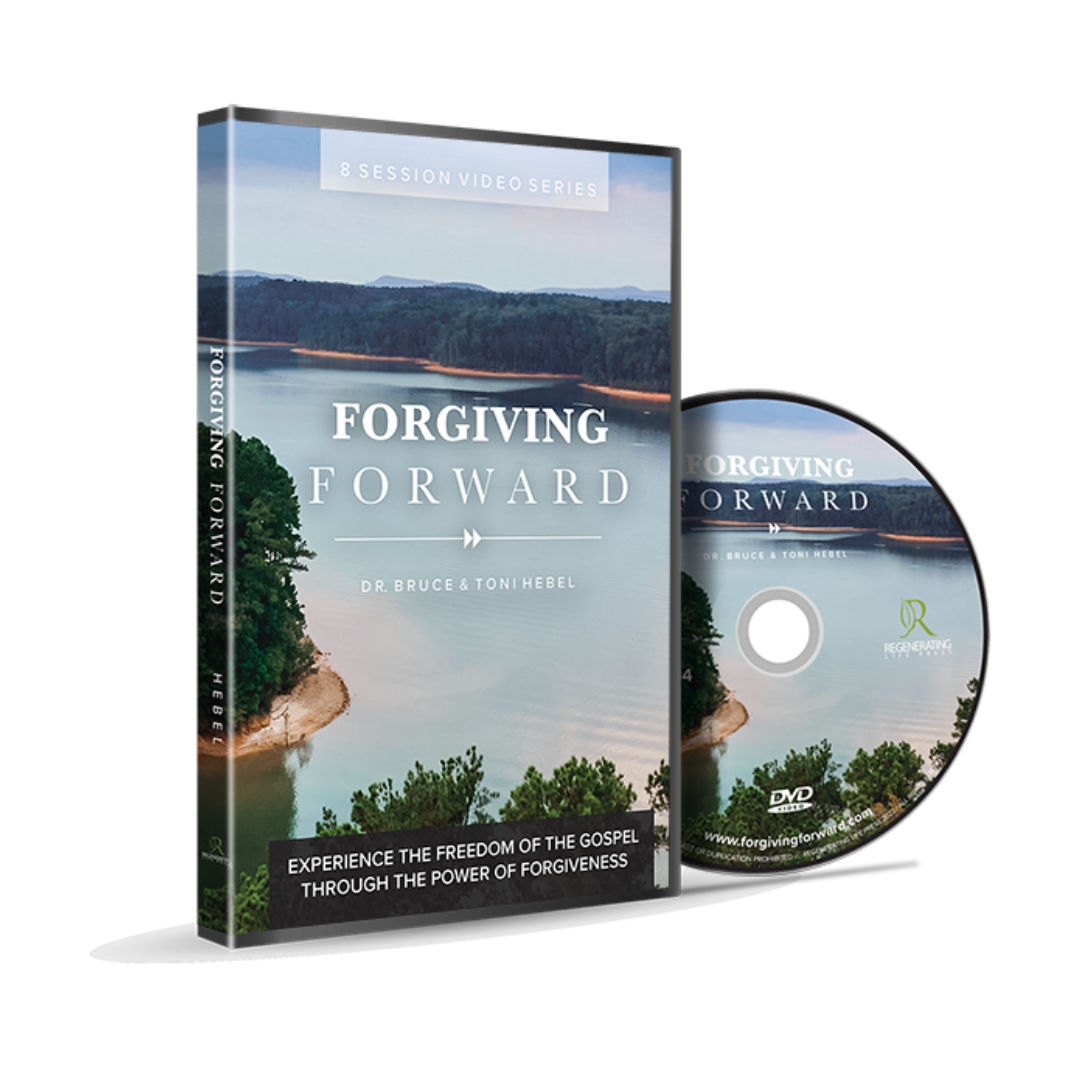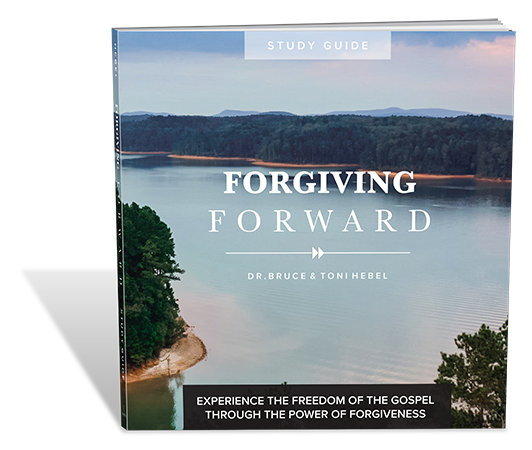Uh oh!
You landed in internet Middle Earth! Let us help you find what you are looking for!
Posts on Forgiveness
The message of Gospel-centric forgiveness teaches us that we don’t forgive people, we forgive wounds and that freedom will be experienced when we forgive the specific wounds incurred against us. Jesus says in Matthew 18 that we should forgive “from our hearts.” To say, “I forgive my uncle,” period, is not forgiving from our hearts but from our minds, and the wounds in the heart are left behind to fester. Jesus, our supreme example, said, “Father, forgive them, for they know not what they DO.” So, to forgive from our hearts will sound like, “I choose to forgive my uncle from my heart FOR saying this, doing that, not doing this, making me feel,” etc. We must be specific. When we identify the wounds, specifically, by speaking them aloud and laying them at the cross, we will experience freedom.
God's original design for marriage was not for Adam to get his needs met but rather to have someone whose needs he could meet.
The story of Christmas actually has its roots in Genesis 3. When God told Adam not to eat from the forbidden tree, God made Adam a promise. “…but from the tree of the knowledge of good and evil you shall not eat, for on the day that you eat from it you will certainly die.” (Genesis 2:17) God’s promise was that the consequence of man’s sin was that he would lose his relationship with his Creator. God kept His promise. When Adam and Eve fell to the seduction of the serpent, curses were declared on all three co-conspirators as our first parents were banished from the garden and severed from life with God. Yet in the midst of keeping His promise, God gave them a new promise as He pronounced the curse on the serpent. “And I will make enemies of you and the woman, and of your offspring and her Descendant; He shall bruise you on the head, and you shall bruise Him on the heel.” (Genesis 3:15) God promised that the woman would have a Child (Jesus) who would ultimately crush the head of the serpent, thus breaking Satan’s power over man and providing a way for man to be restored to relationship with God. As the details of the promise were further developed throughout the Old Testament, we can see how God orchestrated a fulfillment of that new promise leading to Jesus’s death and resurrection. This new promise to bring mankind back to life would require God to do something that man could never do for himself. God would have to pay man’s sin debt, which He accomplished when Jesus shed His blood on the Cross.
The Gospel story is all about freedom. The Babe in the manger was born in Bethlehem to liberate the world by conquering sin and death through the Cross and the Empty Tomb. With His blood, Jesus paid the ransom so that dead men could live. In the 11th chapter of his Gospel, John gives a prelude to this in the account of Jesus raising Lazarus from the dead.
It’s a familiar story. Jesus’ friend Lazarus became sick. Knowing what would happen, Jesus delayed his arrival until after he died. Jesus did this purposefully to display His resurrection power as a preview of what He would do for us through His own death and resurrection. After consoling Lazarus’s sisters, Jesus went to Lazarus’ tomb and commanded, “Lazarus, come forth!” And he did! The dead man came back to life. The cold heart started beating as the motionless lungs began breathing again. By His word, Jesus defeated death and His friend was suddenly alive again.
What’s interesting to me is what Jesus says next. “Unbind him and let him go.” Why did He say that? Lazarus was dead and now he’s alive. He’s been set free from the bondage of death. He was now walking again. Why did someone have to loose him and let him go? Because he wasn’t walking free! Someone had to help him get the grave clothes off. Sometimes, we all need help getting the death off of us—the things from our old life and from our past that keep us from walking free. We have found that one of the primary things that binds us and keeps us from walking free is the torment associated with old wounds. Forgiven people cannot walk freely unless they extend that forgiveness to those who wounded them. And most of the time, people need someone to help them forgive.
Anyone who knows me knows that I’m an avid Kentucky basketball fan. Did I say avid? I was ministering in Romania in 2014 when the Wildcats made it to the March Madness Championship Game. I had taught a full seminar on Friday/Saturday and was scheduled to speak at three different churches on Sunday. So, what did I do? I got up at 4:30 am Sunday morning, Romanian time, to watch UK beat Wisconsin in the Final Four. I was up again Tuesday at 4:30 am to watch them play the championship game where, unfortunately, we lost to the University of Connecticut. But since the game wasn’t broadcast outside the US, I ended up watching it on my iPad via FaceTime through our son’s computer, which he placed in front of his TV in his apartment in Dallas, Texas. I know that’s a bit crazy, but I told you I love Kentucky basketball.
Kentucky has a new Men’s Basketball Head Coach this year. Mark Pope was a co-captain of UK’s 1996 Championship team, and he bleeds Kentucky blue. He has brought a new energy and excitement to the team and fanbase, with the media covering everything Coach Pope says and does. Recently, I was intrigued by a clip of him addressing his team after a practice session. He said, “Gratitude is a skill that, if you practice, will give you a joyful life regardless of your circumstances. It’s a skill we need to practice. You can practice it every single day. Grateful people are joyful people. There’s no way around it. If you’re grateful, you’re joyful.”
Our recent trip to South Korea may have been our most consequential trip to date in terms of the number of significant pastoral leaders we had the privilege of connecting with. I taught 24 sessions to 11 different groups in the two weeks we were there. We shared the message with pastoral leaders from some of the largest churches of various denominations in Korea and, in one case, the world. A conservative number of congregants in the churches represented by these pastors would be well over 125,000 people. We were blown away at the privilege God afforded us on this trip.
To be candid, we were a little apprehensive heading into the sessions with the pastors. It has been our experience that, for a variety of reasons, pastors are often the ones who are the most resistant to the Forgiving Forward message. With this in mind, we enlisted our prayer team and prayer partners to beseech God specifically that He would open the hearts and minds of the pastoral leaders to whom we would be teaching. And God answered in incredible ways.
Day in and day out, we see grown men and women who are tormented, struggling, hurting, bound, hopeless…the list goes on and on. Almost, if not every, person we meet with is struggling with a wound from their childhood. I’ve often thought that if only children could learn how to forgive at the earliest age, they could avoid so much of the pain and torment that carrying unforgiveness throughout their lives brings.















